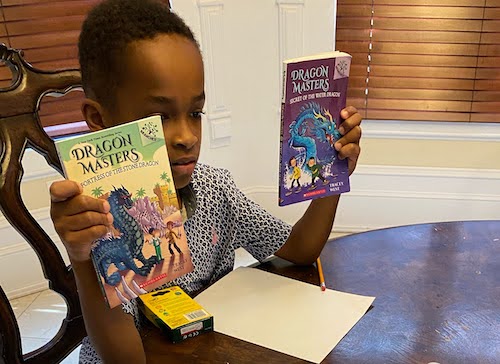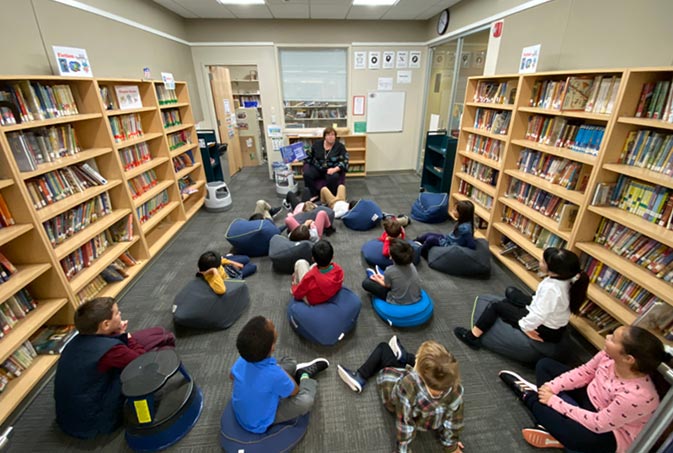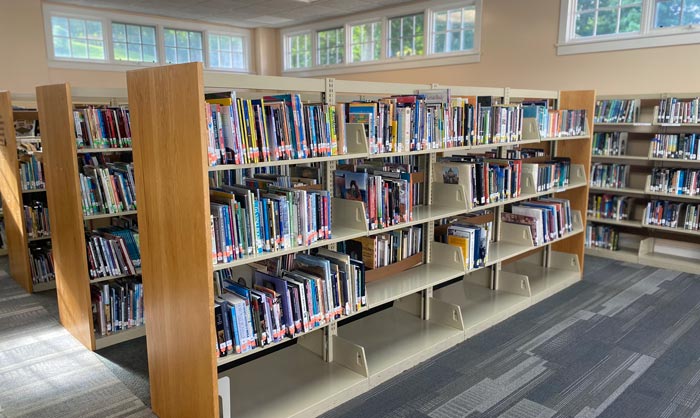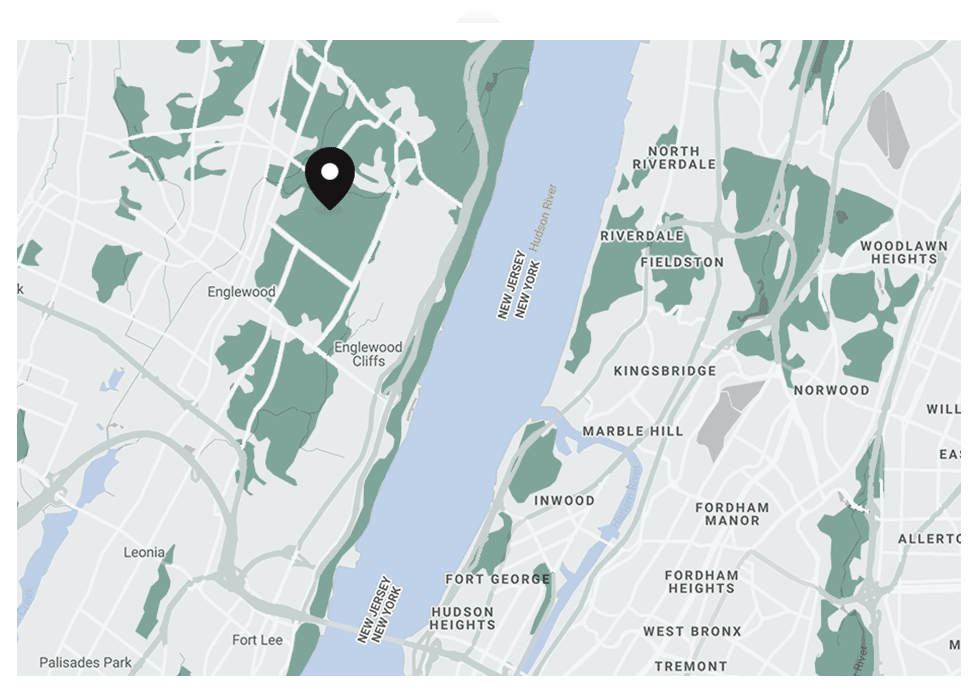
Learning how to find information is critical to lifelong success.
The library isn’t just a place students go for reference or to quietly work on projects; it’s a community space for exploration and discovery. EMS boasts a library in each division, and our staff librarians provide age-appropriate support and guidance to our students and also the faculty members who teach them.
Our technology and library curricula overlap, and teachers work together, especially in middle school, to equip students with the skills they’ll need in secondary school and beyond.
Research is a large part of the curriculum at most levels. The library provides resources and examples to help students meet the requirements for correct citation — we use Modern Language Association (MLA) — as well as guidelines for fair use and copyright.

The goals of our library program:
- Foster a lifelong love of reading and fine literature
- Promote equity through diverse representations within our literary collections
- Guide students to use information ethically via citations and responsible search practices
- Meet the academic and information needs of the entire school community
- Keep abreast of current trends in librarianship through membership in professional organizations
Chilton House Library Collection
The Chilton House library collection (Age 2–Kindergarten), located on the lower level of Chilton House, is one of the first academic spaces where a child can explore autonomously and begin the process of enhancing their imagination and original thought.
Librarians can help our youngest learners overcome obstacles and open up paths to answers. They guide them and provide them with a way to independently discover solutions, knowledge, and creative experimentation — the foundation for a healthy relationship with learning.
For young readers and even those not yet reading, libraries open doors to a relationship with reading that can translate to well-rounded students and engaged citizens. By giving children space, opportunity, and encouragement to lose themselves in learning, children can feel comfortable and confident enough to be independent thinkers and decision-makers.
Little School Library

The Little School Library (Grades 1–4) is designed to meet the social, emotional, and academic needs of the students by offering a safe and inclusive space to be yourself as well as a community space for organized classes, after-school activities, and special programming for both parents and students.
Little School is where we build on the concept of the library as a safe space to think, dream, and begin building research skills that will serve students throughout their lives. The Library Science and Media Studies Program provides a robust interdisciplinary curriculum that challenges and encourages students.
At this stage, we introduce the fundamentals of online and print research in a safe way, helping students understand how to process and organize the information they find. The research program has been designed to help students understand the importance of being able to find information. Beginning in first grade, students learn how to “work smarter, not harder” to find information.
We engage a “Mirrors and Windows” philosophy for books: To encourage compassionate, global community citizens, the Little School Library strives to provide students with books that mirror or reflect their own experiences as well as books that provide a window into the lives of others who are different from them.
Morrow House Library

As the leaders of our student body, our middle school students expand their written and spoken communication skills and model ethical information use by creating citations, demonstrating skilled notetaking, and recognizing critical information. Our faculty members and other educators continue the important discussions with students about how to evaluate the reliability of information available in print and online.
The middle school curriculum includes explorations of fiction and nonfiction writing and features a number of literature-centered electives: Free to Read, which is about censorship and banned books; Reading Council, our library group; and Battle of the Books, where students discuss their favorite books and share trivia, leading to a trivia match during assembly.
Book Club is offered twice a year, where students read the same book or choose from a themed selection and then gather during several lunch periods to discuss and reflect. Themes have included poetry, immigration, realistic fiction, and more.
Parents are additionally welcome to reach out to librarians (and often do) for book suggestions for their children.

